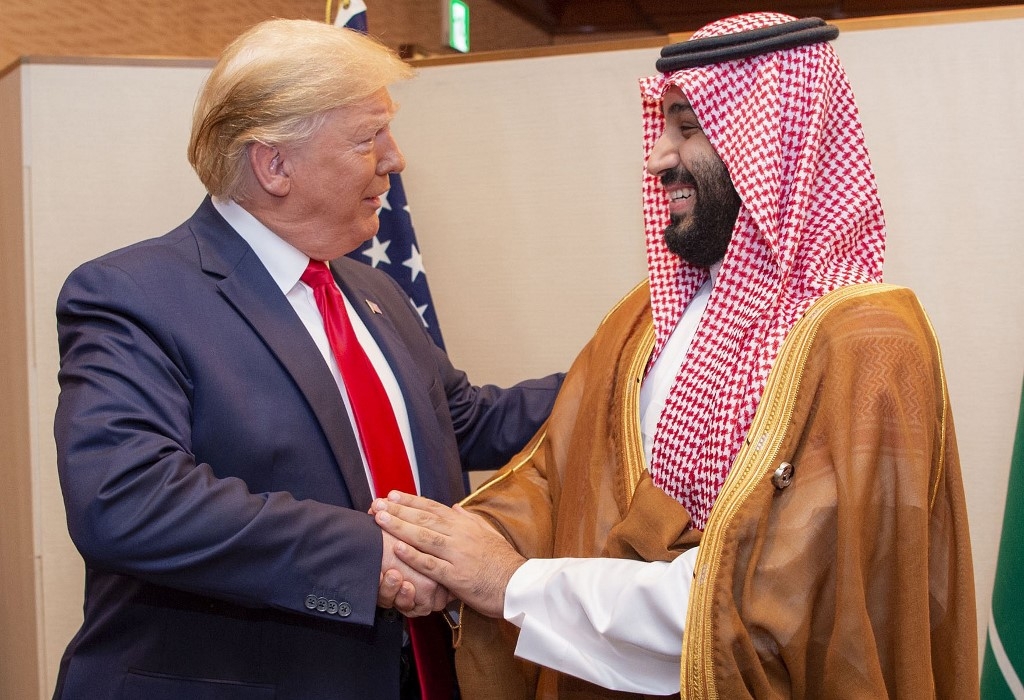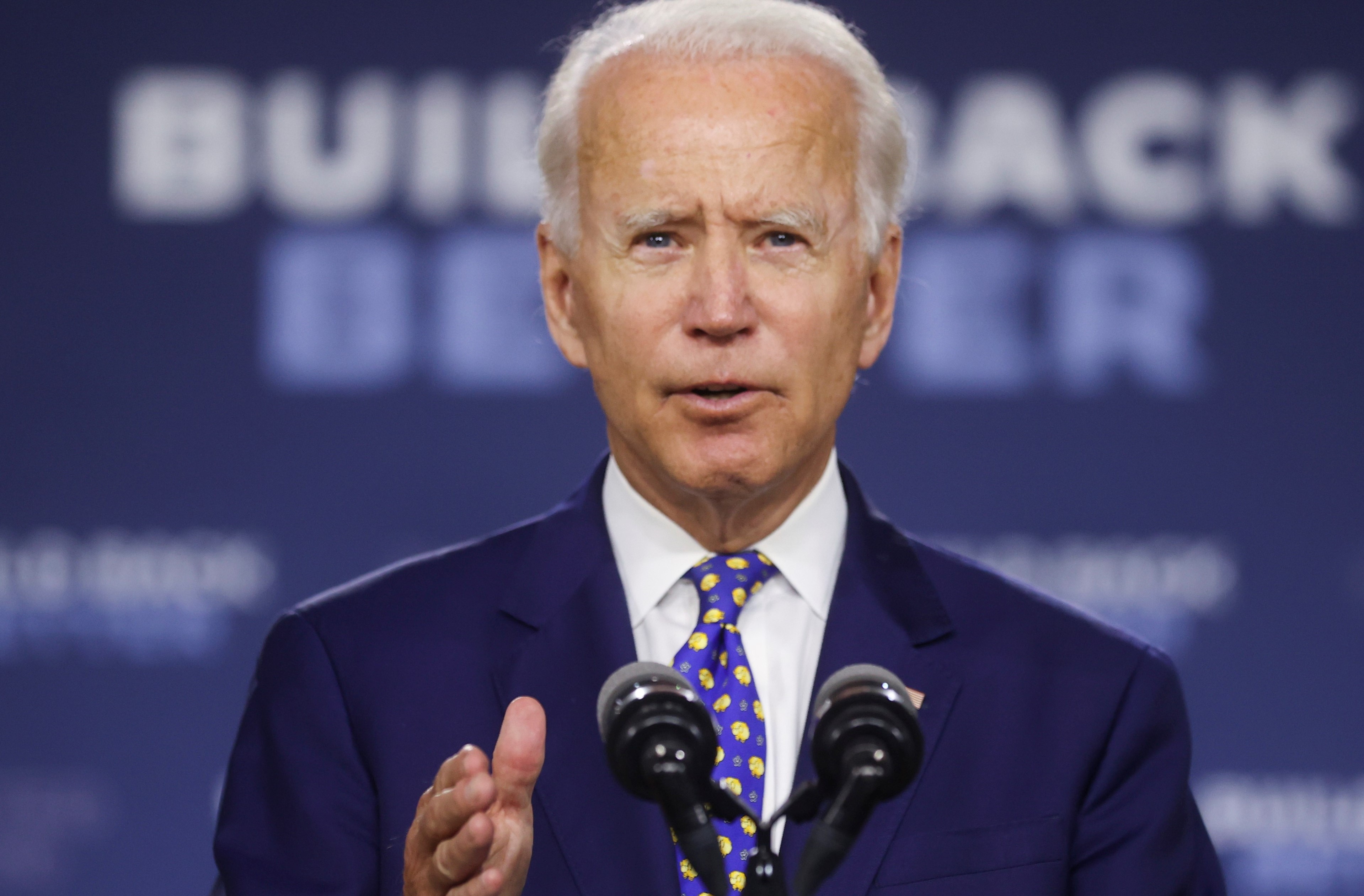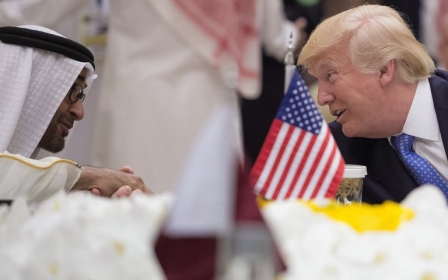Gulf states will be among the biggest losers if Trump is defeated this fall

The US is just a few months away from an election in which the American people will have the opportunity to re-elect President Donald Trump, or make him one of the few one-term presidents in the country’s history by electing his Democratic opponent, Joe Biden.
While a lot can happen between now and November, Trump faces an uphill battle for re-election. Buffeted by a combination of the devastating public health and economic impacts of the coronavirus pandemic, alongside waves of protest over police brutality against African Americans after the brazen killing of George Floyd, Trump’s campaign is in deep trouble, with recent polls showing Biden holding a 50-41 lead.
Biden likely to win
Although it is theoretically possible for Trump to win re-election while losing the popular vote, something he already accomplished when he defeated Hillary Clinton in 2016, Biden is reportedly leading in key battleground states, including Michigan, Pennsylvania and Wisconsin, which Trump carried by the narrowest of margins in 2016 and which edged him to victory in the electoral college.
In short, unless something dramatic changes in the political environment, there is a strong likelihood that Biden will defeat Trump decisively in this fall’s election - and even a good chance that the Democrats will recapture the Senate, giving them control over all three branches of government.
Stay informed with MEE's newsletters
Sign up to get the latest alerts, insights and analysis, starting with Turkey Unpacked
Trump has been willing to give Gulf Arab leaders cover to pursue whatever policies they deem necessary for their own security, without regard to questions of human rights or democracy
Trump, in the mind of his detractors, represents a unique combination of arrogance, narcissism, cruelty, incompetence, greed and racism. He has polarised US politics to an unprecedented extent, and all of those associated with his rise face the prospect of a dramatic reversal in fortunes should he and his Republican allies lose the coming election.
The Trump years have seen a strange recalibration of US-Arab relations, under the guise of the “deal of the century”. The general contours of the deal entail Arab states, and particularly Gulf states, abandoning any resistance to Israeli ambitions in Palestine, in exchange for complete US and Israeli support for Gulf states in their confrontation with Iran.
A secondary aspect of the recalibrated relationship has been a no-questions-asked approach on the part of the US regarding arms sales to Gulf states, combined with turning a blind eye to the human rights violations of Gulf Arab allies.
Weapons sales
The Trump administration’s insistence on selling offensive weapons to Saudi Arabia and the UAE was especially controversial in the face of US congressional opposition, due to the massive humanitarian suffering these two countries have inflicted upon the Yemeni people since their intervention in Yemen’s civil war starting in March 2015.
The gruesome murder of Saudi journalist Jamal Khashoggi in the Saudi consulate in Istanbul in October 2018 laid bare the contradictions between Trump’s transactional approach to foreign relations, in which he said he would not jeopardise lucrative Saudi arms contracts by pressing for real justice, and the demands of the US Congress that Saudi Arabia be held accountable for this brazen act of criminality.
Trump has been willing to give Gulf Arab leaders cover to pursue whatever policies they deem necessary for their own security, without regard to questions of human rights or democracy - so long as they give Israel a free hand in Palestine, continue buying astronomical amounts of US weapons, and stand ready to resist Iran.
All things being equal, it would not be inconceivable that a Democratic administration would support these same policies - but everything Trump does is divisive. For many Democrats, Trump’s embrace of Arab autocrats, such as Saudi Crown Prince Mohammed bin Salman, has not been understood as a shrewd strategy to further US interests, but rather as his embracing another autocrat - a fellow traveller in the world community who acts in open defiance of international legality.
In short, even as Gulf states have in Trump a valuable ally in the White House - both in their external confrontation with Iran, and in their internal confrontations with reformers at home - they seem to have underestimated the extent to which Americans now view them as irredeemable Trumpists, a fact that renders them virtual pariahs to the more than half of Americans who despise Trump.
Resetting US-Gulf relations
There is a strong likelihood that in the event of a sweeping Democratic victory this fall, the Biden administration and Democratic congressional leaders will seek a complete reset of US-Gulf relations.
Taking a hard line against these regimes would come at a relatively low cost to the US internationally, but play very well to US domestic audiences. The coalition that replaces Trump would be multi-ethnic, multi-religious and working class, keenly attuned to issues of income and wealth inequality, and respect for human rights.
They would not be terribly sympathetic to the Gulf states in light of their vast (unearned) wealth, the vast income and wealth inequality in those states, and the states’ contempt for human rights and democracy. These states could easily become punching bags for the new Biden administration.
Bernie Sanders, although he did not win the Democratic nomination, remains a highly popular figure among the party’s base, and there is no doubt that the base is moving closer to his ideals. His public condemnations of Saudi Arabia, for example, are likely representative of the views of the vast majority of Democratic Party voters and activists.
As the global economy’s need for Gulf oil declines in conjunction with the rise of alternative energy technologies and the discovery of massive new oil fields in North America, the global importance of the Gulf has declined and will continue to decline. The collapse of oil prices in the wake of the Covid-19 pandemic has only accelerated this trend.
The brittle nature of Gulf regimes has made them even more dependent on external support to survive. Americans are increasingly unwilling to provide this support, especially if it means risking substantial losses, as would follow in a new war with Iran.
Existential questions
This will be especially true if Biden defeats Trump and the US populace sees Gulf states solely through the lens of their previous relationship with a despised and failed president. At the same time, it is unlikely that other external powers, such as Russia or China, will be able to replace the US as guarantors of the Gulf states’ security.
Gulf states are increasingly facing existential questions: they can either seek to bolster their security by re-establishing their states on democratic grounds, and seeking regional peace, integration and development - something that would require a radical (but much more equitable) redistribution of political and economic power - or they can openly embrace Israel and become its client states.
Gulf states, having bet so much on Trump, are unlikely to see a substantial payoff before the end of his first term
If they refuse to undertake fundamental political reforms, both domestically and in their regional politics, they will find that Israel, which has an abiding interest in maintaining disarray in the Arab region, is the only state that could reliably guarantee the status quo.
But an open embrace of Israel, despite increasingly clear attempts to lay the groundwork for normalisation of relations, carries substantial risks for the Gulf states, especially as Israel proceeds apace with annexation and de jure apartheid. Gulf states, having bet so much on Trump, are unlikely to see a substantial payoff before the end of his first term - and ironically, they now stand to be among the biggest losers if he and the Republicans lose decisively this fall.
The views expressed in this article belong to the author and do not necessarily reflect the editorial policy of Middle East Eye.
This article is available in French on Middle East Eye French edition.
Middle East Eye delivers independent and unrivalled coverage and analysis of the Middle East, North Africa and beyond. To learn more about republishing this content and the associated fees, please fill out this form. More about MEE can be found here.







